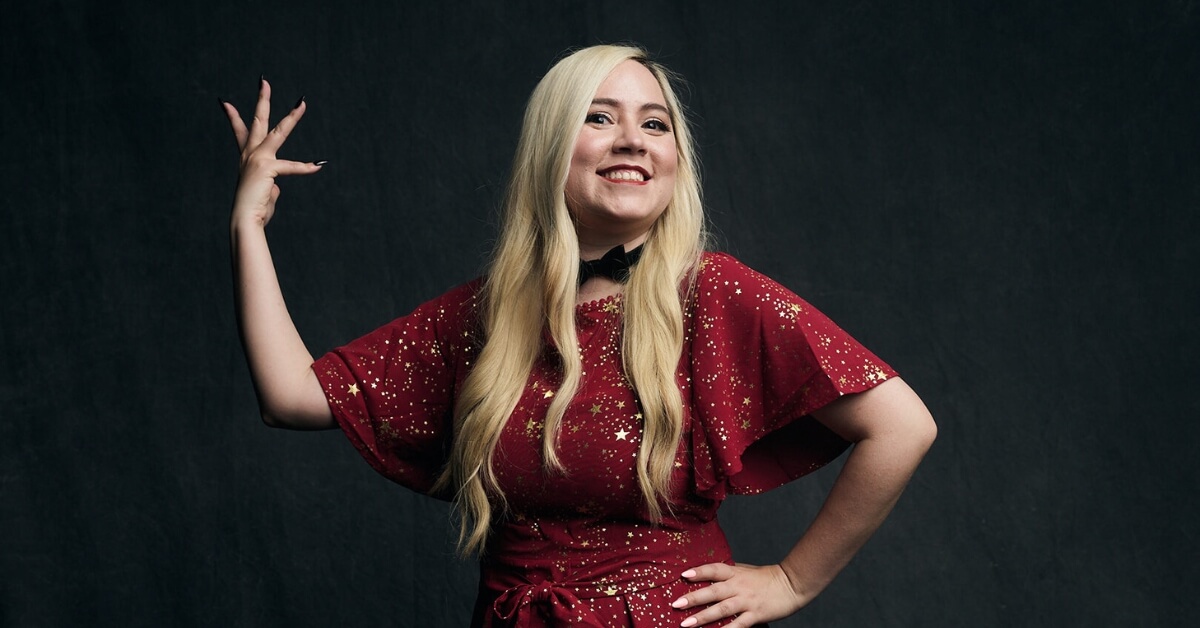Vivienne Medrano, better known as VivziePop, has been making waves in the animation world with her hit series “Hazbin Hotel.”
But behind the success lies a cloud of controversy that seems to follow her every step. From allegations of transphobia and antisemitism to accusations of art theft, the drama surrounding VivziePop is as colorful as her animations.
But what’s the real story behind the headlines? Let’s dive in.
Vivienne Medrano/ VivziePop, the creator of Hazbin Hotel, faced accusations of transphobia, pedophilia, anti-semitism, racism, bestiality, art theft, and inappropriate lesbian representation. Some are unproven rumors, while most have been debunked or clarified.
What’s the Deal with Hazbin Hotel Creator Vivziepop? Why Is She So Hated?
Rumors and accusations against Vivienne Medrano/ VivziePop have been circulating since as early as 2018. These allegations range from transphobia and racism to claims of supporting bestiality and pedophilia.
However, a closer look reveals that many of these claims are either unfounded or taken out of context.
The controversy began with two drawings, purportedly by Medrano, which included a student-teacher relationship and another with a character in a bathtub surrounded by snakes.
The authenticity and origin of these drawings are unclear, with doubts about Medrano’s authorship due to the passage of time.
Furthermore, the character involved in the controversial student-teacher drawing, Addison, is confirmed as an adult, aged 18, on Zoophobia’s Wiki, nullifying the accusations of depicting a minor inappropriately.
Also, it isn’t a teacher-student relationship but rather between a student and an alumni who was a student-teacher. Additionally, both are males. Additionally, despite the contentious nature of the snake drawing, it lacks explicit content or illegality.
The art theft allegations date back to a 2014 dispute with artist Dollcreep, from whom Medrano legally purchased a character design. The conflict escalated due to personal disagreements, leading to accusations from Dollcreep regarding credit for the character JiJi.
Medrano has defended herself against these claims, stating that the contractual agreement did not stipulate credit requirements, and describes Dollcreep’s accusations as stemming from abusive behavior towards her.
This series of controversies underscores the complexity of online allegations and the difficulty of discerning truth amidst personal conflicts and evolving artistic expressions.
Medrano’s case highlights the challenges artists face in navigating copyright issues, personal growth, and public perception in the digital age.
Medrano also faced severe allegations of transphobia and racism for her association with controversial figures like Blaire White and shoe0nhead in 2016, known for their contentious political views on the two above topics.
She admitted to creating art for them during a period of personal turmoil, driven by a desire to explore diverse perspectives amidst political chaos.
Despite not endorsing their views, Medrano appreciated their outspokenness. She clarified that she was unaware of the most severe accusations against them and did not actively follow their content.
Acknowledging her actions, Medrano expressed understanding towards those who lost trust in her, urging not to be eternally judged by past mistakes.
These are not the only accusations against her.
Accusations of Vaggie from Vivzie’s work being a lesbian and Latina stereotype abound, but these are challenged by the creator’s own Latina heritage and Vaggie’s nuanced character.
Vaggie’s anger is contextually justified, directed at characters undermining her girlfriend’s dreams, not a blanket portrayal of anger or lesbian stereotypes.
Both Vaggie and Charlie defy simplistic stereotypes, showcasing depth, mutual respect, and a diverse range of emotions beyond their relationship, demonstrating their characters’ complexity and individuality beyond superficial labels.
There are also allegations of Vivzie copying or tracing other artists’ work, which lack substantial evidence.
Investigations revealed only two instances attributed to her: a gif from a ME!ME!ME! project, which was a cited homage, and a dance sequence in her Timber video inspired by Disney, also acknowledged as an homage.
Both instances are not considered plagiarism but rather respectful nods to the originals. Further accusations of stealing designs are unfounded, as Vivzie legally acquired the characters in question, making them her own creations.
Many online have also accused Medrano of improperly drawing black characters and not giving them the respect they deserve in her creation.
Twitter user @amoratelier_ has also accused the creator of antisemitism. He wrote in a tweet:
“This art she drew which was an art trade with her pal i-hate-jewce on tumblr. On the subject of said blog, Vivzie shipped an oc with their oc which is a caricature of Dr. Mengele.”
In a later tweet, he added:
“The character Mimzy is a short, fat, money-obsessed woman with a hooked nose from the 1920s. She looks like some cutesy version of a propaganda cartoon.”
Also, he elaborated that “Rosie’s casting call directly references the ‘Jewish mother’ stereotype.” The X user also added a screenshot of VivziePop blocking him. However, Medrano hasn’t proven or acknowledged these allegations at the time of writing.
All of this begs the question: how much weight should we give to online rumors and accusations? After all, separating fact from fiction can be a daunting task in this digital age.
Moreover, what does this say about the culture of cancelation and the impact it has on individuals’ lives and careers?
Let us know your thoughts in the comments below.

